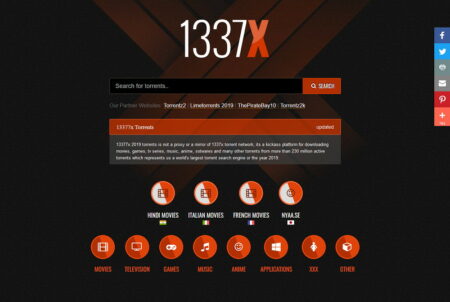This post will explain what are the advantages and disadvantages of file compression. Data compression has a broad variety of computing applications. Additionally, information compression plays an important role in streamlined organizational performance and the prompt transfer of data.
What Are the Advantages & Disadvantages of Using File Compression?
In this article, you can know about what are the advantages and disadvantages of file compression here are the details below;
Computer Storage Space
Files are not only becoming more many with time, but they are likewise growing in size. For instance, where it might have been, at one point, an unbelievable feat of technological force to send 30 carriers of text in a couple of minutes, today’s computer user expects HD video and sound on-demand. Most computers feature adequate to storage area so that keeping large files is not a substantial concern, and tacking on some additional storage with an external disk drive or utilizing a USB flash drive is easy and affordable. Still, when working with extra-large files, saving disk-space is smart practice. Not to mention, lots of typical programs restrict the size of information in numerous methods. Also check Top security guard companies 2021
Gmail Data Limits
As many of you understand, Gmail does not permit you to send e-mail attachments going beyond 25 MB. Alternatively, Google enables users to send data over the web, using the widespread cloud service, Google Drive. Not using file compression drives the process of sending out mass info more time-consuming. Stopping working to compress your files could trigger concerns for your receivers when sending out information online or over networks.
Compression Advantages & Disadvantages
Keeping this in mind, feel some compression advantages & disadvantages and go over some typical kinds of compression, such as zip files & lossless compression. This way, you can prevent losing time downloading and moving substantial files and work appropriately with programs that require huge amounts of area.
What Is Data Compression?
Data compression is a way of modifying or encoding structured information to take up less disk space when kept on a computer-based system. To put it simply, any circumstances in which information or pieces of information undergo a lessening of their original storage size or bit rate, is data compression.
Information Compression vs.File Compression?
When corresponding data compression to file compression, you need to comprehend they’re not always associated terms. Frequently, file compression can be thought about a department of data compression, while data compression describes minimizing the size of any sort of data object– whether it is a cluster of cells or private little bits of data. File compression is a data-compression method which reduces a file’s size to help with disk-space efficiency. Plus, file reduction reduces file sizes when backing up appropriate information and provides to much faster transmissions online and over networks. Also check Benefits of using VPN on Android
In the end, both data & file compression enhance the physical storage resources used by your tech.
How Does Data Compression Work?
The nitty gritty of data compression is rather technical. Simply put, compression is a software application option, or computing method, which utilizes density algorithms to diminish data. A common compression technique replaces repetitive information components and characters counting on deletion to accomplish size reduction. Meanwhile, graphics information may be compressed through lossless compression, whereby recurring data goes un-deleted.
No subject which compression algorithm operated, the result of compression is a file, and files, smaller than their initial size.
Is File Zipping Different Than File Compression?
When it boils down to it, zipping is a type of file compression. Specifically, zip files, albeit.zip and .zipx, often contain numerous compressed files called “archives.” Zip files are the most widely known compression format among Windows’ users. So, it’s not a surprise WinZip is the most widely utilized compression software application for PC users.
Understanding Zip Files
Regardless, think of how folders operate in Windows. You can group several files within a folder and move the folder around. On the other hand, the files remain together in the initial arrangement. Zip files work in a like manner, however the folder’s contents are decreased to increase storage efficiency. Not only do zip files complete organizing associated files easier, but they likewise make moving, downloading, emailing, and keeping information much more manageable.
This meaning of a zip file pleases many people. Yet, did you understand zip files have many other parts than merely compressing files and creating compressed archives? By the identical token, WinZip is not the only program out there for managing compressed files– nor is it the most sophisticated.
Third-Party Software
A complimentary software program for Windows called 7-Zip is one that can do much more than the os’s native archiver, i.e., WinZip. The following are some advantages of using third-party, compression software:
Encrypting zip files
Zip file encryption is a vital resource if you want to compress files while protecting them from prying eyes. Simply do not forget to use a powerful password, so dictionary attacks and brute-force do not prevent your encryption efforts. Also check Best POS system for restaurant
Self-extracting archives
A self-extracting library is a standard zip file with an ingrained executable (. exe) extension. Carrying out the archive will enable the extraction process to start by itself. It’s not required to use any customized programs to open the archive.
Split to volumes
There are many circumstances when you have actually a compressed file too large to fit on anybody external storage unit, whether it be a CD or a USB flash drive. So, it’s great when your program manages you the alternative of separating an archive into numerous volumes.
Top-quality compression
Lastly, 7-Zip’s onboard compression rate energy allows for more compact file compression. Although this advantage isn’t vital, making room for a couple of extra MBs can be clutch under certain scenarios.
At the back of the day, 7-Zip is one of numerous auxiliary programs which facilitate data compression. So, choosing a program with functions appropriate for your needs is suggested.
Advantages of File Compression
As you’ve seen, there are multiple benefits to utilizing file compression. Here’s a recap:
Increased calculating performance
Compressed information authorizations users to back-up and store information quicker, particularly when dealing with bigger files. Keep in mind: The advantage of compressing digital video is becoming more useful as video sales letters (VSLs) and customized videos become more widespread.
Quicker transfers
Not only does file compression allow you to move files around on a local gadget more effectively, it likewise enables you to send big files and information quicker over the internet.
Improved file integrity
Uncompressed files can frequently end up being corrupt when sent over the web. Zipped files serve to preserve the stability of your files and ensure your information goes uncorrupted.
Email & webpage accessibility
It’s more comfortable to compress more extensive files when uploading them to a web page or sending them via email. Also, as previously mentioned, the most typical e-mail systems restrict the size of attachments. So, compression provides a method to send several files jointly, instead of 1 by 1.
Disadvantages of Data Compression
Although this forum has mainly concentrated on the benefits of file compression, it would be negligent not to note some of the drawbacks normally related to compression. Here are some disadvantages when compressing your information:
Compressed files should be uncompressed
Despite the fact that this might look such as common sense, not everyone is aware with compressed files. So, the unpacking of your zip files on the recipient’s back can often prove problematic.
Executable files have a bad rap
Preventing files ending in “. exe” is one of the first things you find out when starting on the net. So, if you use a third party timetable to develop self-extracting archives, don’t be surprised if your recipient is reticent to open your compressed accessory.
Unencrypting can occur
If you put encrypted files into a currently formatted zip folder, there’s a strong probability they will become unencrypted when they’re unpacked. This coding defect could wind up accidentally disclosing individual details and sensitive information.








